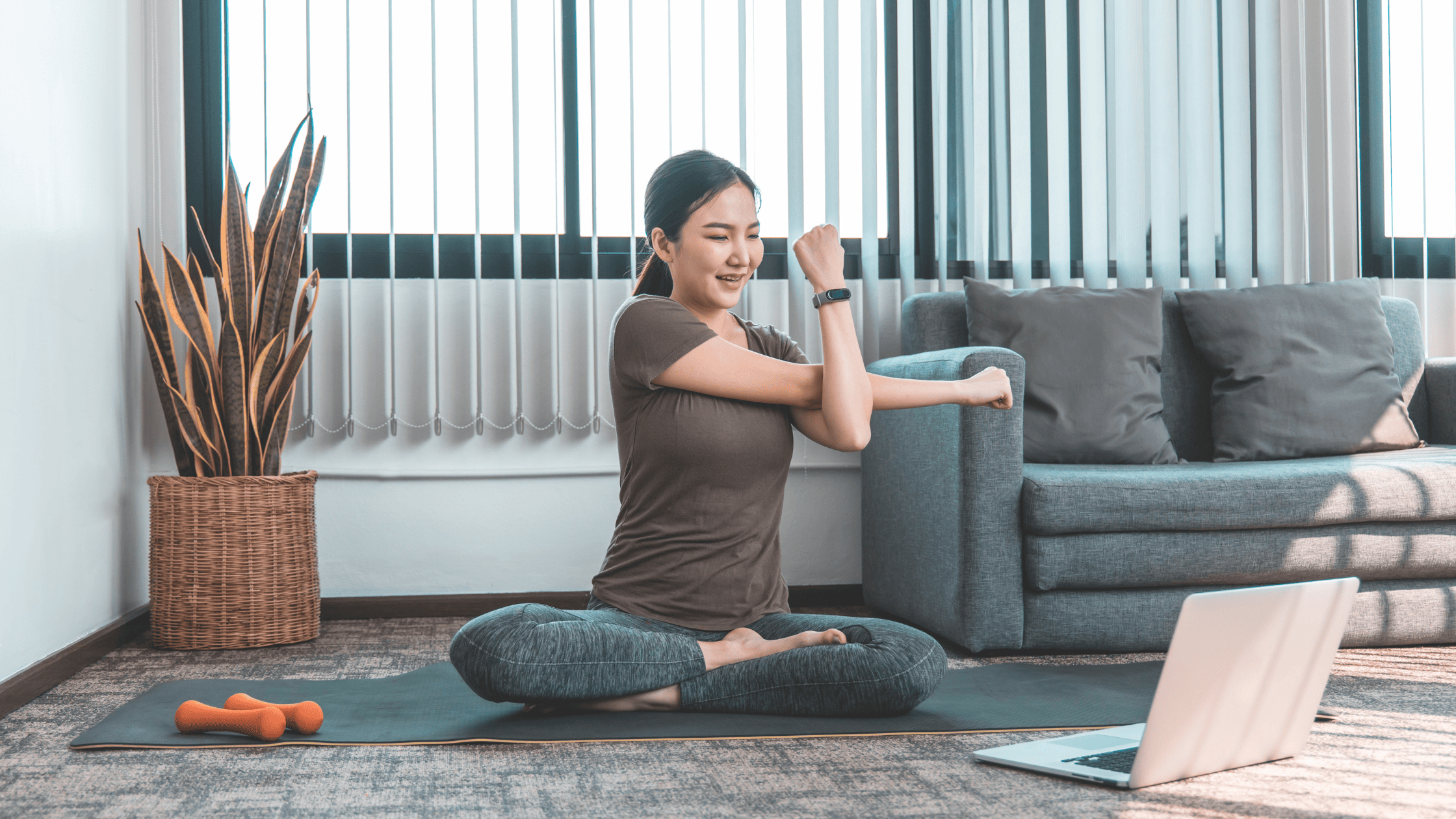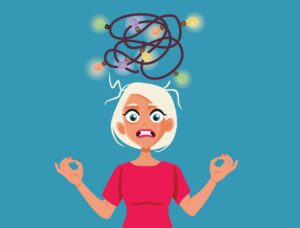Leading a healthy, balanced life involves nurturing our mental and physical well-being. The concept of mind-body wellness emphasizes the interconnectedness between our psychological and physiological states. Regular exercise is vital in achieving this all-encompassing state of health and harmony.
Understanding the Mind-Body Connection
The mind and body share an intricately linked relationship that impacts our overall health. Science has shown that our mental health and outlook influence biological factors like brain chemistry, hormones, and immune system functioning. Likewise, our body’s physical condition and fitness level affect how we think, regulate our emotions, and cope with life’s stresses.
Understanding this powerful mind-body connection is key to unlocking the multifaceted benefits of exercise. Physical activity has proven positive effects on mental and physical health, making it essential for cultivating holistic well-being. Regular workouts’ psychological boosts of mood, self-esteem, and cognitive health interact symbiotically with improvements in stamina, strength, sleep quality, and energy levels.
Exercise Alleviates Stress and Anxiety
In our fast-paced modern world, chronic stress has become a globally prevalent issue. Exercise offers a productive outlet for alleviating daily tensions. Physical activity helps mitigate the body’s physiological stress response. It also gives us time to mentally unwind and achieve a sense of calm.
Studies confirm that regular cardio, strength training, and movement-based activities can reduce fatigue, tension, and anxiety symptoms. Exercise stabilizes vital neurotransmitters like serotonin that regulate our mood and outlook. It also averts rumination and damaging thought patterns that feed anxiety by directing our focus to productive physical efforts.
Physical Activity Lifts Mood and Fights Depression
Exercise is well-established as an impactful remedy for boosting mood and addressing mild to moderate depression. Studies demonstrate that regular workouts can be as effective as psychotherapy and medications in combating depressive symptoms. Movement triggers the release of feel-good hormones in the brain, which elevate our mood and emotional state.
Fitness training also boosts self-confidence by providing a sense of accomplishment and improving self-image. Feeling physically fitter and healthier already fosters more positive thought patterns. The social interaction and friendships built around exercise communities can further uplift mood. An active lifestyle cultivates resilience and emotional stability to help weather daily stresses.
Exercise Promotes Better Sleep Patterns
Quality sleep is foundational for both physical and mental well-being. Unfortunately, over 30% of adults face chronic insomnia and sleep disruptions1. Exercise significantly improves sleep by reducing symptoms like restlessness, fatigue, and anxiety.
Active movement rhythms help regulate our circadian clock for more restful sleep-wake cycles. Exercising outdoors boosts exposure to bright daylight, which enhances melatonin release. Avoiding rigorous activity 2-3 hours before bedtime ensures exercise aids rather than hinders sleep quality. Overall, embracing regular workouts can equip us with the tools to combat sleep disruptions.
The Psychological Benefits of Physical Activity
Beyond physical gains like improved cardiovascular health, strength-building, and disease prevention, exercise enhances psychological well-being in various noteworthy ways.
Exercise Enhances Self-Esteem and Body Image
Physical activity plays a key role in shaping self-identity and cultivating positive self-regard. Challenging fitness pursuits lead to a genuine sense of achievement and pride. Strength, stamina, and physical competency gained from exercise establish confidence and improved self-worth.
Additionally, exercise helps us appreciate and respect our body for its abilities rather than exclusively its appearance. Sports training and athletic hobbies also facilitate meaningful social connections. All these benefits boost self-assurance and self-acceptance.
Exercise Combats Age-Related Cognitive Decline
Extensive research displays exercise’s neuroprotective effects in minimizing age-related decreases in brain volume and cognitive faculties like memory, processing speed, and mental agility2. Fitness training spurts increased gray matter density and neural connectivity in key brain regions.
By enhancing blood circulation, oxygenation, and growth factor production in the brain, regular workouts can counteract or slow down degenerative conditions like dementia and Alzheimer’s. Challenging coordination drills and cross-training routines provide ideal brain stimulation. The cognitive boost fuels further motivation to sustain consistent exercise habits.
Active Lifestyles Improve Resilience and Stress Management
Hectic, demanding routine circumstances are essentially unavoidable. Physically active individuals, however, have extra reserves of mental energy and resilience, allowing them to navigate daily stressors with less strain and struggle.
Exercise is a cathartic release valve for pent-up worries, frustrations, and tensions. It also fosters confidence to tackle difficult scenarios. Lifting mood and self-esteem via regular workouts thus helps successfully adapt to stress and adversity. Over time, embracing exercise as a coping tool builds grit and psychological resilience.
Incorporating Exercise into Wellness Routines
Finding suitable physical activities that align with your health goals, lifestyle, and interests is key to sustaining long-term exercise. Experiment with home workouts, studio classes, community sports teams, and outdoor pursuits to discover rewarding options. Scheduling exercise appointments and enlisting social support also boosts motivation and consistency.
Cardiovascular Training
Running, swimming, cycling, and other rhythmic aerobic activities help release feel-good endorphins and relieve stress. Start with shorter 10-15 minute sessions approximately three times a week, then gradually increase your duration to progress.
Strength and Resistance Training
Weight lifting, Pilates, calisthenics, and other muscle-strengthening routines build mobility, balance, and bodily competence. Aim for at least 1-2 full body sessions per week, allowing rest days for recovery.
Holistic Movement Forms
Yoga, tai chi, qigong, and dance gracefully integrate physical activity with mindfulness, breathwork, and deeper mind-body awareness. Embrace these holistic modalities 2-3 times weekly for optimal well-being.
Overcoming Barriers to Exercise Commitment
Despite recognizing exercise’s multifaceted benefits, many still struggle with motivation and consistency. Start by acknowledging your key barriers–lack of time, intimidating gyms, expense, pain, or low energy. Then, creatively troubleshoot solutions.
Are you limited on time? Wake up 30 minutes earlier and incorporate a quick bodyweight routine before work. Have a low budget? Search for wallet-friendly neighborhood walks, YouTube workout videos, or second-hand equipment deals. Are you feeling too tired? Scale back intensity and durations at first, allowing your stamina to build gradually.
Small incremental steps do culminate over time. Be compassionate and patient but persistent through minor setbacks. Enlist friends, family, or colleagues to join you on the journey so you feel supported through obstacles and challenges that arise along the way.
Integrating Mindfulness into Exercise
Combining fitness training with mindfulness increases mental health benefits while improving exercise performance. Simple tactics like focused breathing, meditation techniques, and targeted foam rolling before workouts help calm the mind, ease muscle tension, and increase bodily awareness.
During exercise, channel a non-judgmental observation of physical sensations, cadence, and alignment rather than excessive outcome-based thinking. End each session with meditative stretching and body scanning while giving gratitude for your capabilities.
Embracing mindfulness primes us to become more responsive to bodily cues related to optimal nutrition, rest, and self-care. By learning to filter out unhelpful background mental noise, we grow more attuned to the direct positive feedback from regular exercise.
The Way Forward
The human system truly is greater than the sum of its parts. Embracing regular exercise allows us to harness the immense power of the mind-body connection toward living a vigorously healthy, resilient, and meaningful life. Prioritizing physical activity and mindfulness cultivates positive biometrics and enhances emotional outlook, cognitive function, stress tolerance, and self-mastery.
Now equipped with exercise strategies for boosting holistic wellness, challenge yourself to dedicate time to consistent fitness habits. Notice how the compounded physical and psychological gains create an upward spiral, helping you show up as your best self to handle life’s blessings and obstacles! Download the Fresh Tri app for gentle nudges and reminders to give yourself the gift of caring for yourself.
- Bhaskar, S., Hemavathy, D., & Prasad, S. (2016). Prevalence of chronic insomnia in adult patients and its correlation with medical comorbidities. Journal of Family Medicine and Primary Care, 5(4), 780-784. https://doi.org/10.4103/2249-4863.201153
- Castells-Sánchez A, Roig-Coll F, Dacosta-Aguayo R, Lamonja-Vicente N, Sawicka AK, Torán-Monserrat P, Pera G, Montero-Alía P, Heras-Tebar A, Domènech S, Via M, Erickson KI, Mataró M. Exercise and Fitness Neuroprotective Effects: Molecular, Brain Volume and Psychological Correlates and Their Mediating Role in Healthy Late-Middle-Aged Women and Men. Front Aging Neurosci. 2021 Mar 8;13:615247. doi: 10.3389/fnagi.2021.615247. PMID: 33776741; PMCID: PMC7989549.













